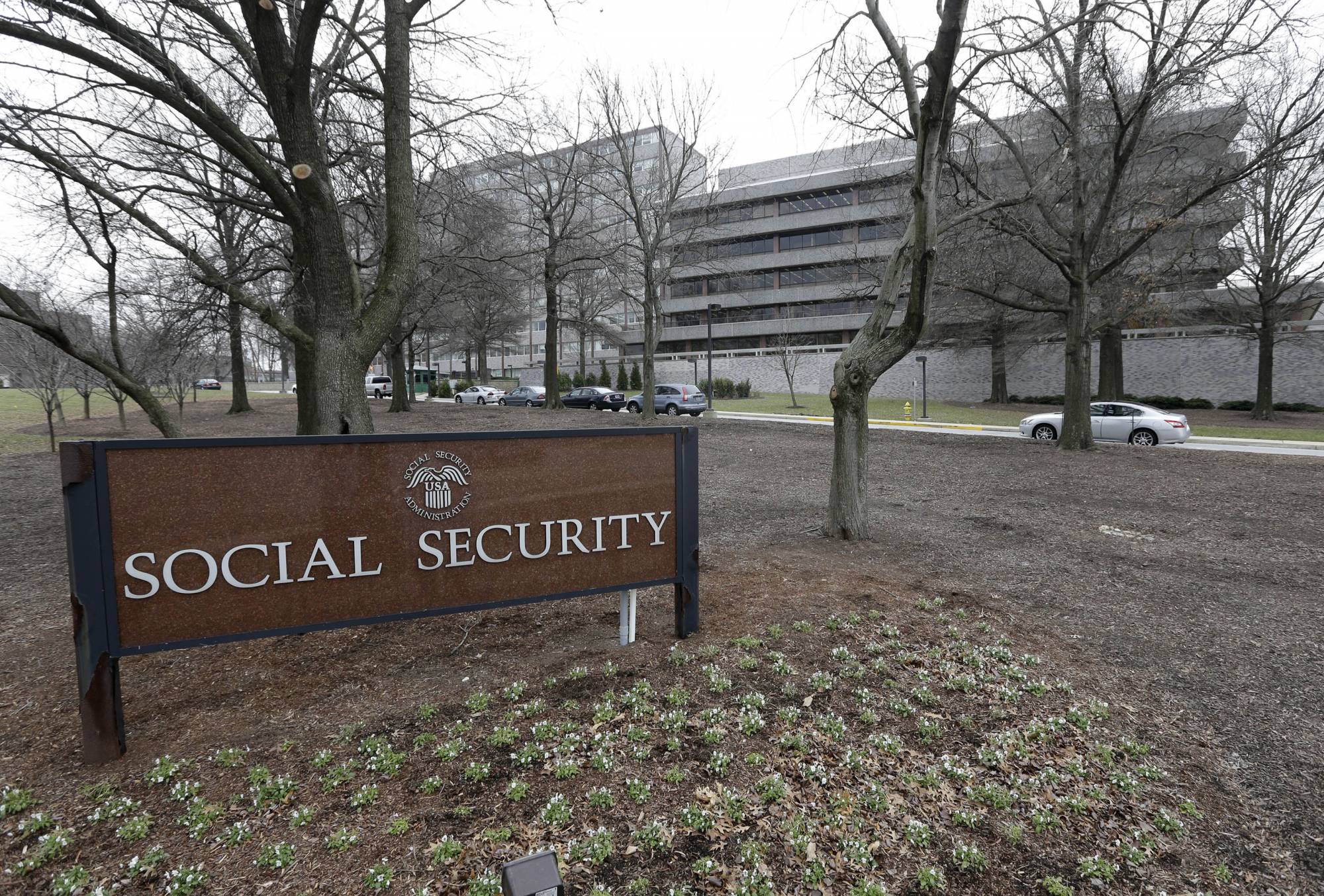Thinking of retiring early? Don’t just run out the door
Thinking of taking early retirement? Whatever your motivation might be, it requires as much planning as regular retirement.
Thinking of taking early retirement? The biggest mistake you can make is running out the door because of what Elon Musk might do. In fact, early retirement, whatever your motivation might be, requires as much planning as regular retirement. Federal retirement expert Tammy Flanagan joined the Federal Drive with Tom Temin to discuss some tips.
Interview transcript:
Tom Temin: Thinking of taking early retirement. The biggest mistake you can make is running out the door because of what Elon Musk might do. In fact, early retirement or whatever your motivation might be requires as much planning as regular retirement. And here with some tips, federal retirement expert Tammy Flanagan. In retirement is retirement, whether it’s early or at the normal time. Right. And so you still need to do the same things.
Tammy Flanagan: Exactly, Tom. And thanks again for having me today. Yeah. I remember going back to whenever Crystal City was emptying out all the Defense Department employees with Department of Navy and I was called in. This was in the early days of me doing this type of work. But I was called in to go to one of these movie theaters to talk to the employees about early retirement. And, man, it was like a party atmosphere. They’re all coming in, ‘Hey, we’re going to retire early. This is great.’ And then after I told them, I’m like, ‘Well, there’s a reduction in the amount of benefits. And you’re only going to be 50 years old and you’ve got half your lifetime ahead of you. You don’t have that much saved in your thrift.’ And they left there in a little more somber mood than when they came in realizing that they could retire from federal service, but they couldn’t necessarily stop working.
Tom Temin: That’s right. Yes. Because, as you say, if you retire at 50, 52, you’ve got another 30, 40 years likely to live. And that’s a long time on a what’s left of the FERS pension you’d get and whatever you could save in the TSP. And by the way, I had written a column recently and I noted that we’re off topic here for a second, kind of that there’s now up to 160 or so thousand TSP millionaires. And I saw one account. There’s only one account that has 9 million. And then I thought of the math.
Tammy Flanagan: How that got there. But yeah, definitely some crazy, crazy numbers.
Tom Temin: But it could not have gotten there by savings alone from a federal salary because you’d have to save even if you were a SCSR and you saved 100% of your salary for 30 years, you wouldn’t have 9 million? So it must have been someone.
Tammy Flanagan: No, that had to come from somewhere else.
Tom Temin: Moved in somewhere and ended up in the TSP. So that settled my mind down a little bit. Anyway, so where do you begin for early retirement and what are the special considerations?
Tammy Flanagan: Just like you said, Tom, with anything, you have to plan for retirement, whether it’s early or traditional or whatever it is. And I think today, employees are starting to realize that retirement planning starts with the early part of your career because we just mentioned the TSP and that doesn’t work if you wait till the last minute to start saving. But I think if you’re thinking in terms of maybe I’m going to be offered an early out or maybe I’m going to be rifted at some point. And there’s that element of urgency where I need to really start putting my ducks in a row and start thinking about what it is I should be doing. There are things employees can do to prepare for retirement at any age. And one is just to make sure all your service has been documented and accounted for because nothing worse than retiring and finding out that you thought you had 30 years of service, but you really only have 19 years and six months. You want to make sure all that service is creditable for retirement. Some of it could require a deposit or a payment. Some people call that a buyback to get credit for certain types of service. So that’s things I think employees of any age should be doing. And be aware of the fact that your service for retirement could be different than the service you had when you came on board to be creditable for leave accrual. Those are two different things. So just a basic understanding of how this works would be really helpful.
Tom Temin: Right. And then you also, I guess, would need to review your family situation, your marital situation, if that’s the case, to make sure that the right people are designated for what benefits that they are designated for?
Tammy Flanagan: Right. Yeah because while you’re working, those things are kind of automatic as far as if an employee dies in service, there are certain benefits payable to your spouse and children. Employees carry life insurance, typically through the Federal Employees Group Life. But when you retire, you’re making decisions of those sorts and some of those decisions come with a price tag. In other words, if you’re going to leave a survivor benefit to your spouse, that’s going to cause a reduction to your retirement of anywhere from 5 to 10%. And so if you don’t do that, what’s the alternative? So it’s time to think about those kinds of decisions because some of those are irrevocable. Once you’ve chosen not to provide that survivor benefit and five years goes by and you realize, ‘Oh, my goodness, that means my spouse will not get to keep health insurance.’ It’s a little too late to go back and change it. So, again, going back to this educating yourself and getting a better understanding of these choices that you have to make that can be conceivably life changing.
Tom Temin: We’re speaking with Tammy Flanagan. She’s a principal at Retire Federal and that issue about life insurance, as we’ve often said, if you retire on the normal retirement schedule, whatever you do, don’t let your FEHBP plans lapse because once you do, you can’t get back in. Do you have it for life if you retire early from the federal government if you opt in?
Tammy Flanagan: Absolutely. Under early retirement provisions, under disability retirement, no matter which way you’re going to claim retirement, with the exception of a deferred benefit where you’re not eligible for an immediate retirement. Otherwise, you can keep your health insurance as long as you’ve had it for the last five years of your career. And that also pertains to an early out. So someone getting ready to retire early, who for whatever reason didn’t have coverage under FEHBP the last five years, has to take a step back and maybe start looking around for other jobs that might be subject to downsizing because that’s one benefit you don’t want to leave federal service without. You might pick up health insurance through a private sector job, but that is likely not to be lifetime coverage, which might mean you have to work until you’re 65 and qualify for Medicare because it’s too expensive to buy health insurance in the marketplace, especially if you’re in your late 50s or early 60s with a preexisting medical condition.
Tom Temin: Right. And the Affordable Care Plans have not turned out to be all that great a deal either, have they?
Tammy Flanagan: They’re not all that affordable for everyone, right. Yeah, I have a good friend of mine, a colleague who is paying $900 a month for herself to have health insurance under the Affordable Care Act. And it’s because she’s a cancer survivor and she’s in her early 60s. And so they price that according to your age and they ask you questions about your lifestyle and health. So that does affect the premiums.
Tom Temin: Right. And let’s talk about the TSP for a moment. If you have some TSP, you can keep that right? That’s something a lifetime benefit even if you’re not in the government, but you can’t keep adding to it. Is that the way it works?
Tammy Flanagan: You got it. Yeah. So you can keep your TSP account as long as you have a balance of as little as $200, the account stays open and like you said, you can’t add new money to it. However, you can transfer other qualified money into it. So if you went to work in the private sector and put money in a 401(k) and for whatever reason you like the TSP investment options or the low cost of it, you can transfer that money when you separate from that job into your TSP account so that you can continue to have all of that retirement savings in one place, which goes back to your $9 million example, which is probably what that person did.
Tom Temin: Of course, we don’t know how they got $9 million in savings in qualified savings elsewhere, but they didn’t get it working for the federal government so far as we can tell.
Tammy Flanagan: They took a downgrade to come work for the government.
Tom Temin: Well, I’m hoping they’ll come forward and identify themselves. If you’re out there listening, let us know who you are.
Tammy Flanagan: Make an interesting interview.
Tom Temin: Sure. And on life insurance, again, your FEGLI is gone when you leave, right?
Tammy Flanagan: No, actually, it’s not. And that’s another big decision you have to make when you retire is that you can keep your FEGLI. And if you keep the basic FEGLI, which is what employees had since the day they were hired, it’s your salary at the time of retirement plus $2,000 if you’re over 65 and retired or when you become 65 after retirement, that’s free. And now it does reduce, but hey, you’ll keep 25% of it, which is a pretty nice final expense allowance for those expenses your family might be faced with at the time of your passing. So don’t drop your basic FEGLI. Consider how much life insurance you need because one thing with the optional FEGLI, this is option B that allows you to have five multiples of your salary that might be affordable when you’re in your 30s and 40s. But when you hit age 50, it goes up almost 50%. When you hit 55, it almost doubles. And when you go to age 60, it more than doubles and it keeps going up every five years from then. So there’s going to come a time in every federal retiree and employees life when it becomes more expensive than what it’s worth. And that’s when you have to decide do I want to replace it? Do I want to reduce it? Do I want to just cancel it depending on how much I still need it? What are my financial responsibilities that are going to be left behind if I’m not here?
Tom Temin: Right. As long as there’s enough to bury you and your remaining family or spouse or whatever is OK by other means, it’s probably not financially all that smart to keep an expensive life insurance policy.
Tammy Flanagan: That’s right. And the problem is the time we start to think about reducing it or replacing it with a term life insurance policy might be too late. In other words, we might be older, we might not be in the best of health. And it’s hard to buy life insurance when you have preexisting illnesses. So if you’re a younger employee listening in your 30s, 40s, 50s, think about your needs for life insurance. Maybe it’s only until the mortgage is paid off. Maybe it’s only till the youngest child gets out of college or gets married. And so maybe a 20-year level term policy can save you a lot of money and it’s going to have a term. But when that term is up, your needs will go down.
Tom Temin: So bottom line is then to go back to what we said at the top is just don’t rush out in haste. Even if you don’t like Vivek Ramaswamy or who knows what’s going to happen to your agency. And by the way, if your agency is relocated to somewhere out there.
Tammy Flanagan: And tried to move some employees to Grand Junction and that didn’t work out too well because nobody was there to take those jobs.
Tom Temin: Right. And it varies by agency what they’ll offer you. You might not even get relocation expenses in some cases, even under a rift.
Tammy Flanagan: Yeah, it depends on what type of assignment you have and whether or not you’ve signed some type of mobility agreement. But if you’re being moved to a new location and this again I’ve been around long enough that I’ve been through some of this in the past, but when I was with the FBI, we had our fingerprint division, which took up two floors of the Hoover Building in D.C. But they moved that all, of course, to West Virginia. And those employees, which literally there were thousands of people who worked in that division, had to make a big choice. Do I want to take my family and move to West Virginia? Do I want to try to find another job within the bureau, which there weren’t enough jobs to go around? And if they did take the move, they would be paid to relocate and they would maintain their job. But that was a big decision to make. And not everybody wanted to go.
Tom Temin: Yeah, this is happening in the Bureau of Prisons, which is closing facilities, and sometimes the nearest job could be seven hours away or basically a relocation. And it’s not clear what benefits are available for those people, which gets to the point that have some cash on hand anyway in your life. You always need you always need some money around.
Tammy Flanagan: Yeah, that’s a great suggestion. And that’s even for people retiring after 35 years of service because there’s a transition between being an employee and becoming a federal annuitant in that your retirement application has to go through this whole adjudication process, which literally can take months. And during that time, OPM, the Office of Personnel Management, will pay you partial retirement payments. But sometimes those are 50% of what you’re expecting. So there’s going to be a deficit in what you thought your retirement was going to be initially and what it actually is. So, yeah, have some living expenses put aside. Have some cash on hand to carry you through those delays and give you time to make proper decisions, whether or not to take Social Security, whether or not to start withdrawing money from the thrift. So hopefully you can have a little extra cushion of cash there to carry you through.
Tom Temin: And in the meantime, don’t let the DOGE bite.
Copyright © 2025 Federal News Network. All rights reserved. This website is not intended for users located within the European Economic Area.
Tom Temin is host of the Federal Drive and has been providing insight on federal technology and management issues for more than 30 years.
Follow @tteminWFED






